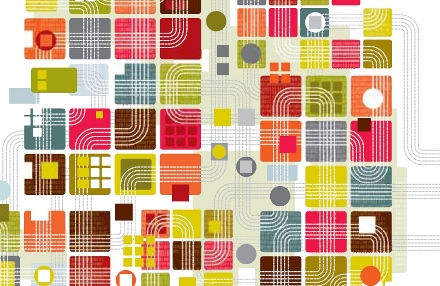Magazine: Letter from the editor
Next steps for XRDS
organic growth
FREE CONTENT FEATURE

Next steps for XRDS
organic growth
Full text also available in the ACM Digital Library as PDF | HTML | Digital Edition
We received a lot of emails, tweets, and posts about the launch issue of XRDS, the first rebranded edition of this magazine with its new look and new editorial focus. It's been overwhelming and encouraging (see "Inbox," page 5 for some of the feedback). Thank you for the kind words and comments! We're already using what you liked and didn't like to reshape XRDS. You'll start to see changes incorporated into this issue and future ones. Like the volunteer team that runs it, XRDS is organic. We're learning and evolving. So keep reading and sending us comments; it's greatly appreciated.
Having now served as editor-in-chief for a year, I can say that running (and reinventing) a magazine is remarkably similar to debugging a large program. Adding to that complexity is the fact that it's a highly parallel processa topic you'll read about in this issue. There are processes that deadlock on each other, periods of resource contention where the team is thrashing, and editors who "malloc" a lot of my memory and never free it. Sometimes, when we fix a "bug," new ones appear. It's a highly iterative process, and I'm glad we've got a staff of CS-minded people to help work through the challenges.
"Running a magazine is remarkably similar to debugging a large program. ... Sometimes, when we fix a 'bug,' new ones appear. It's a highly iterative process and I'm glad we've got a staff of CS-minded people to help work through the challenges."
Overall, I hope you'll agree that each subsequent release of XRDS gets a little better. And we've still got some exciting things in the pipeline.
Some of you might have received a complimentary copy or two of this magazine and may not be members of the ACM at all. To keep receiving XRDS, you'll need to start or make sure you maintain your ACM student membership (it's as little as $19 a year). Thus, we encourage you to check your membership status and make sure your mailing address is correct.
XRDS is just a small component of a much larger package... there are scores of other benefits that come with your ACM student membership, including big discounts on conference registrations, hundreds of free software downloads, 500 online books, and 3,200 digital courses. In this issue's "Benefit" column, we tell you more about MentorNet (page 7), another of the many perks.
To join up or read more, visit: http://www.acm.org/membership/student.
Having wrapped up our second XRDS issue (the one that's in your hands or on your screen right now), we're finally hitting our stride. So what's next?
For the Winter 2010 release, we have a whopper issue coming together on human computation with an all-star author line up. For Spring 2011, we're assembling a fascinating group of articles on how technology and computing are transforming banking, currency, and commerce. Farthest out, in Summer 2011, we'll be turning out attention to green technologies, exploring how computer science plays an important role in sustainable efforts, like smart electrical grids.
If we've touched on an area of interest to you, please consider writing an article, opinion piece, or even sending us a related photo or image for publication. Submissions are welcomed from students, faculty, and industry (see http://xrds.acm.org/authorguidelines.cfm for more tips on how and what to submit). If you have something particular in mind, we suggest pitching it directly to us first to open a dialogue about the subject:[email protected]. Then we can work with you to make sure it's a good fitfor you, for us, and for the rest of the student community.
Chris Harrison, editor-in-chief, is a PhD student in the Human-Computer Interaction Institute at Carnegie Mellon University. He completed his BA and MS in computer science at New York University in 2005 and is a recipient of a Microsoft Research PhD Fellowship. Before coming to CMU, he worked at IBM Research and AT&T Labs. He has since worked at Microsoft Research and Disney Imagineering. Currently, he is investigating how to make small devices "big" through novel sensing technologies and interaction techniques.
DOI: http://doi.acm.org/10.1145/1836543.1836544
©2010 ACM 1528-4972/10/0900 $10.00
Permission to make digital or hard copies of all or part of this work for personal or classroom use is granted without fee provided that copies are not made or distributed for profit or commercial advantage and that copies bear this notice and the full citation on the first page. To copy otherwise, to republish, to post on servers or to redistribute to lists, requires prior specific permission and/or a fee.
The Digital Library is published by the Association for Computing Machinery. Copyright © 2010 ACM, Inc.
Pointers
Forum on all aspects of the Ada language and technologies
http://www.sigada.org/
Operates an annual Genetic and Evolutionary Computation Conference (GECCO)
http://www.sigevo.org/
Explores programming language concepts and tools focusing on design, implementation, and efficient use
http://www.sigplan.org/
TOCHI covers the software, hardware and human aspects of interaction with computers
http://tochi.acm.org
The purpose of TOPLAS is to present research results on all aspects of the design, definition, implementation, and use of programming languages and programming systems
http://userweb.cs.utexas.edu/~toplas
School of Computer Science
5000 Forbes Ave
Pittsburgh, PA, 15213-3891 USA
http://www.hcii.cmu.edu


